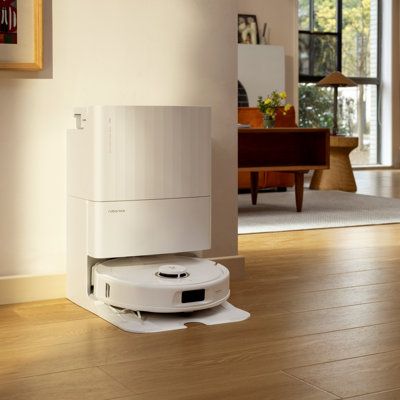It’s important to enjoy life today and the experiences that come with being a young adult, but today’s enjoyment should not come at the expense of tomorrow’s financial stability. If you invest your holiday money rather than spending it, it’s a chance for you to get ahead of the game and take care of Future You.
And this is especially important for us women. Why? Because the gender pay gap — that lovely fact a woman makes 78 cents for every dollar a man makes — makes it much harder to find the money to invest, and consequently, women stand to lose out on investment returns over time.
So, how much does this pay gap cost over a lifespan of a successful woman’s career? You may want to grab a glass of Chardonnay before you dive into this. Because it’s a lot:
When you look at how much money women lose throughout their lives because of the gender wage gap, the results are even more shocking. According to the Institute for Women’s Policy Research, the average female worker loses more than $530,000 over her lifetime.
And if you think that’s bad, you may want to skip over this next line because those of us women who think receiving a higher education would benefit us are noted for earning $800,000 less over their lifetimes than equally qualified men.
The wage gap even affects women after they retire from work. Because women earn less than men during their working years, and they end up retiring with less income than their male counterparts from sources such as Social Security, pensions, and retirement accounts.
So, what does this all mean? The hard reality is that women need to save and invest a greater percentage of their income to accumulate enough money for retirement.
Huh? How? Where do I even start? Ellevest CEO Sallie Krawcheck says it’s different for everyone and depends on your unique situation. But before you even get down to building a portfolio, you should check off a few other financial milestones.
1) Get out of high-interest debt.
The very first thing you should do is get out of any high-interest debt. Real talk: get rid of that high-interest credit card debt. Especially if the interest rate on your debt is high, getting rid of your debt as fast as possible will help you avoid paying thousands of dollars of interest.
While interest rates generally have been falling to record levels, the Federal Reserve reports that rates on outstanding credit card balances recently reached the highest level since 2010, at 13.22 percent. As a result, using your end-of-year bonus to pay off this credit card may be one of the most productive moves you can make with it.
2) Build a cushion for emergencies.
What’s an emergency fund? It’s extra cash set aside, in case of, you know, an emergency.
We know, we know: setting aside money for a rainy day isn’t all that much of a sexy option. But, it’s necessary, because that pile of cash is ready and waiting for you when you need it — but there are all sorts of reasons you might “need it.” Here are a few examples:
- You lose your job. Hey, it happens.
- Your car breaks down. Ugh, we can all relate to this one.
- You break the glass on your phone — and you didn’t opt into that insurance option.
- You have a medical or dental emergency (pets, included). We all know these can be expensive AF.
So how much do you set aside? Three to six months’ worth of your take-home pay (depending on how stable your financial situation is).
The amount you need to save may seem totally overwhelming at first, but it’s really not. Once you pay off your high-interest debt (more on how to do that here), start saving — a little bit from each paycheck every month, and before you know it, you will have set aside a nice cushion for that emergency fund.
Where do you save the money? This can be in your checking account, or better yet, in a separate savings account. Ellevest, which we mentioned earlier, believes their clients can’t afford any investment risk with their emergency money, so they place all assets in their Emergency Fund goal in FDIC Cash.
This means that these assets are insured by the Federal Deposit Insurance Corporation, which the U.S. government describes as “an independent agency of the United States government that protects you against the loss of your insured deposits if an FDIC-insured bank or savings association fails.
3. Beef up your 401(k) employer match
Ideally, you’re already putting money into your 401(k) retirement account if you have the option, but, if possible, you’ll also want to get in the habit of increasing your contributions consistently. A bonus is a great opportunity to do so.
4. Invest in another retirement savings account
Enrolling in your employer’s 401(k) plan is a great start, but experts say that it may not provide enough to fund your future. It’s smart to consider alternate retirement savings accounts too, such as a Roth IRA, traditional IRA and/or health savings account.
Direct your extra money towards one of those options. You can get started with an investment plan or an IRA with pretty much any investment advisor (including Ellevest), bank, or broker-dealer, and you make contributions just like you deposit money into an account. To mimic the auto-saving feature of 401(k)s — and ensure you’re not tempted to spend what you plan to save — you can set up recurring payments through your checking or savings account.
Upgrade your retirement. Open a Retirement Goal or rollover your old 401(k) with Ellevest Digital.
$0 minimum. Get started in minutes.
5. Make investing a habit.
As we mentioned above, we suggest starting with retirement. Next, you should get started investing.
Invest regularly, whether it’s with every paycheck, every week, month, or quarter. Make it a routine, like brushing your teeth or Friday poke with your girlfriends. To mimic the auto-saving feature of 401(k)s — and ensure you’re not tempted to spend what you plan to save — you can set up recurring payments through your checking or savings account.
Look into automated investing services known as robo-advisors, or low-cost index funds, which Sallie Krawcheck, founder of Ellevest, investing legend Warren Buffett and billionaire Mark Cuban recommend. Over two-thirds of Ellevest clients invest this way, with recurring deposits set up.
So you got a bonus — congratulations! Now you might be wondering if you should invest it right away or over time. @SallieKrawcheck has the answer. pic.twitter.com/zsSxmuxzbu
— Ellevest (@Ellevest) December 24, 2018
Ready to inject that holiday bonus with some power? You can get started with an investment plan or an IRA with pretty much any investment advisor (including Ellevest), bank, or broker-dealer, and you make contributions just like you deposit money into any account.
Because yes, life gets distracting, but a goal (think buying a house, a big trip, starting a business) without a plan is just a wish. This year, take that end-of-year holiday bonus and turn it into a win. (We’ll be here to help along the way cheering you on.)
Pay yourself first: Your new resolution for 2019. Make sure a cut of every paycheck goes straight to your retirement or savings account and does not pass go.
Here are more personal finance topics for you…
The One Money-Habit All Wildly Successful Women Share
The Personal Finance Tips Everyone In Their 20s Should Follow
3 Reasons Why You Need a Roth IRA- Even If You Have a 401(k)

Questions? We’re here to help. Leave us a comment and we’ll get back to you!








